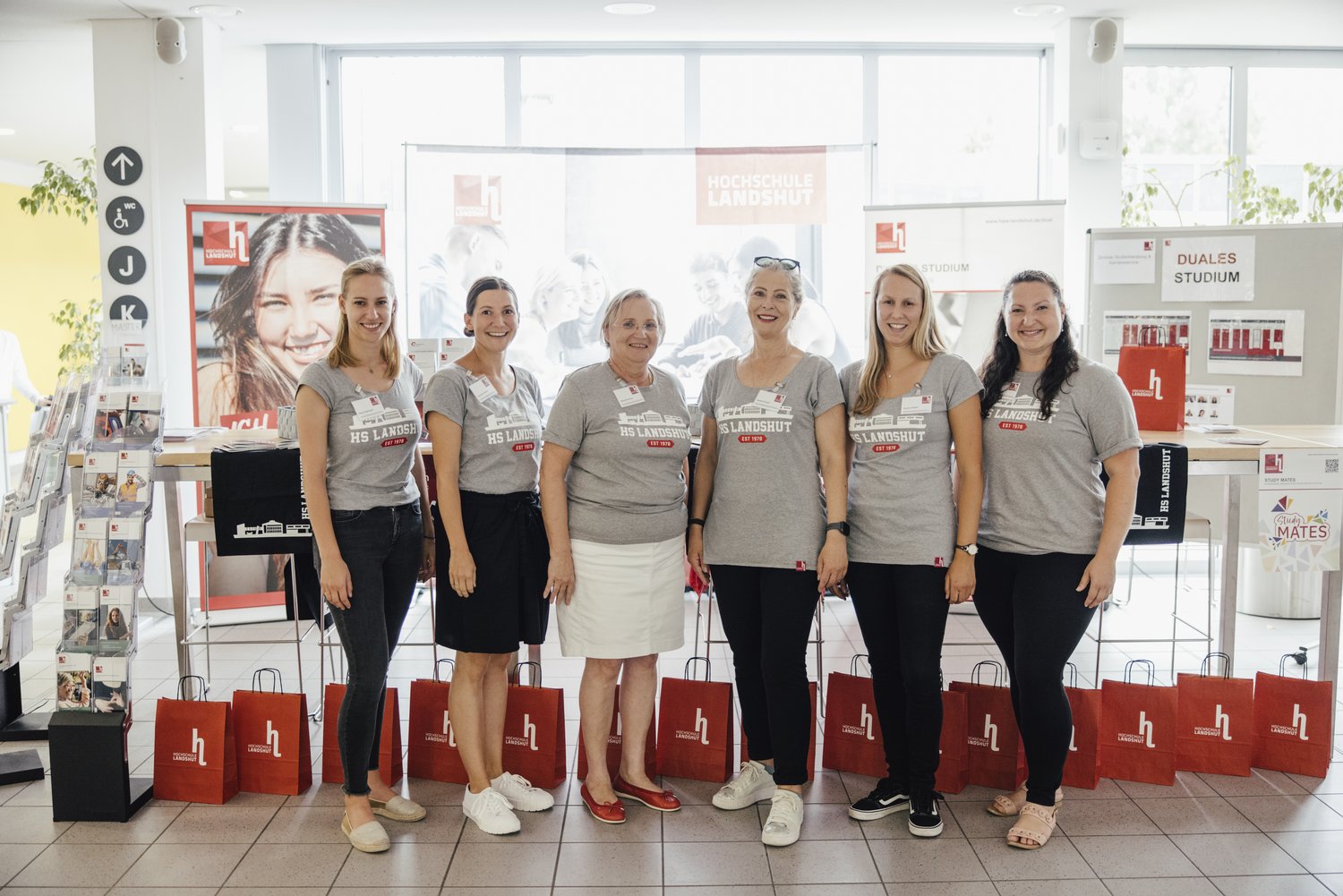The project days are organised by the university in consultation with the school. The schools receive an overview of possible topics and can choose the appropriate modules/labs/internships from these. As capacity is limited, e.g. in laboratories, the programme depends not only on interest, but also on the number of pupils. We are happy to create individual programmes within the scope of our possibilities.
Possible target groups
- 9th to 11th grades at grammar schools
- 9th and 10th grades at secondary schools
- as well as students of the FOS/BOS.
Group size
- Minimum of 20 to a maximum of approx. 100 pupils
- Modules with practical components: 10-15 students per module
- For other modules (e.g. library, soft skills or lectures), the group size varies depending on the event
Talent workshop
This is a special format of the Junior University, which is organised by the ministerial representative offices. You can find more information here .
Review
- FOS BOS Erding
- FOS BOS Landshut
- Seligenthal Grammar School
- Hans-Leinberger Grammar School Landshut
- Maximilian-von-Montgelas-Gymnasium Vilsbiburg
- Hans-Leinberger Grammar School Landshut
- Seligenthal Grammar School
- FOS BOS Erding
- Ergolding Grammar School
- Hans-Leinberger Grammar School Landshut
- Hans-Leinberger Gymnasium Landshut
- FOS BOS Erding I
- FOS BOS Erding II
- Ergolding Grammar School
Project days as part of the junior university at Landshut University of Applied Sciences
Of robots and entrepreneurs
Junior university: school pupils experience science
Controlling a robot with just a blink of the eye - that's what young people tried out at Landshut University of Applied Sciences. Interested pupils from Seligenthal and Hans-Carossa grammar schools bustled around the campus at the Junior University Day at the end of June.
They were able to choose between various modules and decide for themselves which subject areas they were particularly interested in: electrical engineering, computer science and industrial engineering. In addition to science and technology, the programme included a joint module on sign language interpreting: "We learnt the sign alphabet and talked to students about the course. We attended the morning modules separately," report Christina Euringer and Vera Rosinger from year nine at Seligenthal Business School.
Controlling robots using facial recognition
"The topic 'NAOs - programming humanoid robots' clearly showed what even simple robots are capable of. We had the robots sit down, stand up again and even execute commands using facial recognition. We also got an insight into the degree programme and had fun programming them. The "Founding a company" module focussed on the processes involved in founding a company. We learnt about the most famous company founders and were allowed to work out our own company concept towards the end. In general, we really enjoyed the Youth University Day and left with a good impression of Landshut University of Applied Sciences," report the two students.
A change from everyday school life
Frederik Bach from year ten at Seligenthal Business School was equally enthusiastic: "The day at Landshut University of Applied Sciences was a great experience for me. Not only the change from everyday school life, but above all the professors, who presented their subject areas in a very practice-orientated way, and the opportunity to talk to the students about life on campus made for a successful morning. Overall, the university left a very good impression."
The event takes place regularly and is aimed at pupils in the ninth and tenth grades at grammar schools, secondary schools and middle schools as well as FOS/BOS and is intended to help them decide on a specialisation for their studies.
Pupils from the state-run technical secondary school in Erding learnt about studying business administration at Landshut University of Applied Sciences.
Business administration - there is much more to the acronym than just facts and figures:
Business economists have to understand interrelationships in business, society and politics. But they first have to develop a feel for this, for example during their studies. On Wednesday, 28 July 2016, around 60 pupils from the Erding state technical college at Landshut University of Applied Sciences experienced what this can look like: as part of the junior university, Johannes Kuchler, who is studying international industrial engineering, talked about his everyday life - a degree programme that combines business knowledge with technical expertise.
An important basis is, for example, the cost-benefit theory. Prof Dr Michael Leckebusch gave an insight into the subject and let the students in on the secrets of the figures. Prof Dr Marcus Fischer explained how this is put into practice: he showed how to develop a business model and present the internal structures and interrelationships of a company.
Pros and cons of studying
Kerstin Dempf helped anyone who wasn't quite sure whether a degree programme was for them. With her, the students collected arguments for and against an academic education and learnt about different learning techniques. In small groups, the young people discussed what career path they would like to take and how to get there. "It was really nice and motivating," commented one pupil.
Landshut University of Applied Sciences has already opened its doors to young people six times this school year: The junior university offers 9th to 11th graders an insight into what studying means - and what is behind electrical engineering, automotive informatics or interdisciplinary studies. Past events have focussed on topics such as internet technologies or challenges facing society and possible solutions. Students and lecturers will be looking over their shoulders again next school year.
Please note:
Photos and videos will be taken during the events and will be used for event documentation and public relations work. Further information can be found HERE.





